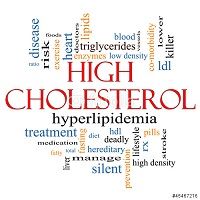Article
New and Costly Cholesterol Drugs Could Soon Debut
Author(s):
The medical world is eagerly awaiting the likely approval this summer of two new cholesterol-lowering drugs, known as PCSK9 inhibitors. But at a cost of $7,000 to $12,000 a year, they won't be for everyone.

Physicians are likely to get 2 new weapons to treat dyslipidemia by mid-summer: the first 2 PCSK9 inhibitors, both monoclonal antibodies, are expected to be approved by the US Food and Drug Administration.
Speaking at the 19th Annual Conference on Hypertension, Diabetes and Dyslipidemia, Michael Davidson, MD, a clinical professor and director of preventive cardiology at the University of Chicago’s Pritzker School Medicine, offered a primer on the highly anticipated new drugs.
Proprotein convertase subtilisin/kexin type 9 (PCSK9) is a complex protein created by the liver that then goes into the plasma. “When the liver takes in LDL receptors PCSK9 comes along as an obnoxious passenger,” Davidson said.
The discovery that PCSK9 inhibits LDL receptors was made in France.
Validation that it was safe to inhibit the protein came in Dallas, TX, when a patient was found to have lost her ability to produce PKSC9 but had no ill effects.
“The word is the first two PCSK9 inhibitors will be available by fall,” he said.
“This could be very important to primary care,” Davidson said.
But in answer to a physician who wondered whether the average family practice physician would be reimbursed by insurers for the drugs—which are likely to be expensive—Davidson said it was hard to predict. By one estimate, the drugs will cost between $7,000 and $12,000 for a year’s treatment.
The drugs will be administered by injection, likely a self-injector, likely 1 every 2 weeks.
Patients who are statin-intolerant, or who have familial hypercholesterolemia are good candidates for the new drugs.
“I’m confident they have a good safety profile,” he said, and equally promising, “we are seeing a 50% lowering of cardiac events—but the numbers [of patients in trials] are low still.”
Physicians will have to call on their experience and judgement to decide when patients are truly statin-intolerant, he said.
“Statin-intolerance is a flaky thing—academics are not sure it is real and say it’s not been proven,” Davidson noted, “but we believe it is.”
Three pharmaceutical companies—Amgen, Sanofi/Regeneron, and Pfizer have PCSK9 inhibitors advancing in the pipeline.





